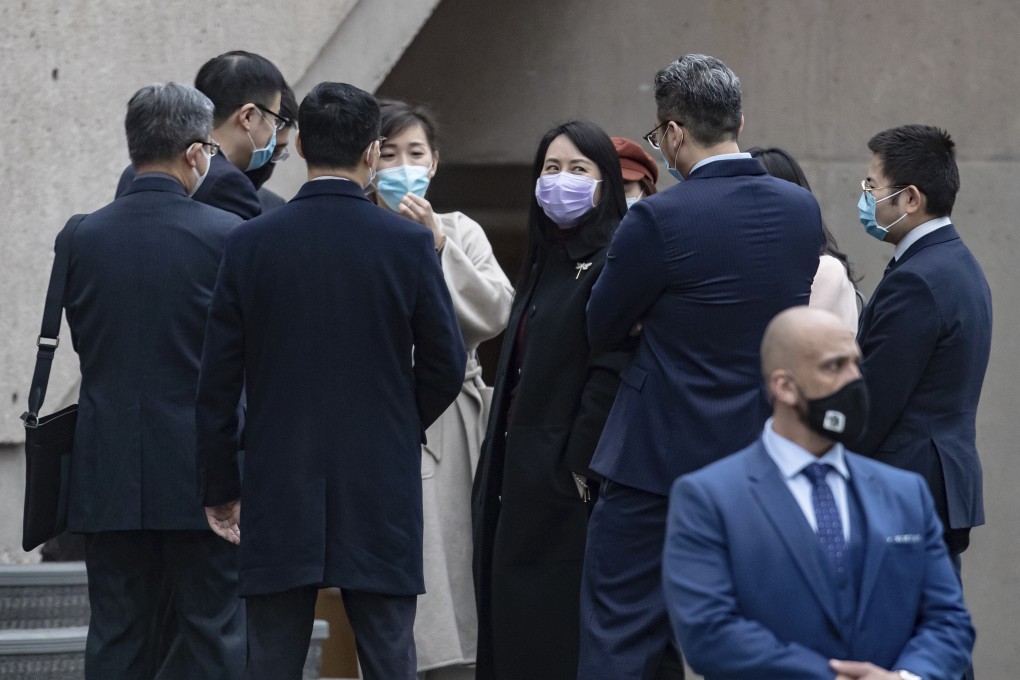Meng Wanzhou’s lawyer mocks Canada border officers’ testimony, telling extradition judge to be ‘very sceptical’ of honesty
- One officer’s testimony was ‘entirely ridiculous’, while another’s should be viewed with caution, the Huawei executive’s lawyer said
- Arguments in a Vancouver court that Meng’s rights were abused came hours after the espionage trial of Canadian Michael Spavor in China

Huawei Technologies executive Meng Wanzhou’s lawyer ridiculed and rejected the testimony of Canadian border officers who dealt with her before her arrest at Vancouver’s airport 27 months ago, telling the judge at Meng’s extradition hearing on Friday she should be “very cautious” and “very sceptical” of their honesty.
Parts of their testimony were “entirely ridiculous”, said lawyer Mona Duckett, as she made the case that the Canada Border Services Agency [CBSA] unlawfully obtained information from Meng without informing her of her right to legal counsel, in a covert evidence-gathering exercise on behalf of the American Federal Bureau of Investigation.
Duckett told the Supreme Court of British Columbia that CBSA Superintendent Sanjit Dhillon’s questioning of Meng, after she arrived at Vancouver’s airport on December 1, 2018, was “probative of nothing but US assistance”.
Dhillon had asked Meng questions about Huawei’s business in Iran. “Those, remarkably, are connected to the US fraud warrant,” said Duckett sarcastically, referring to the US request that Meng be arrested.
Her answers’ value to Canada was “zero … the value is only to a US audience,” Duckett said. “I would urge the court to be very cautious about officer Dhillon’s evidence.”

01:54
Canada judge releases video of Huawei’s Meng Wanzhou being searched at airport before arrest
The latest arguments about whether Meng’s Canadian charter rights have been abused – part of her two-year court battle to avoid being sent to face fraud charges in the US – came hours after the espionage trial of Canadian Michael Spavor in China.